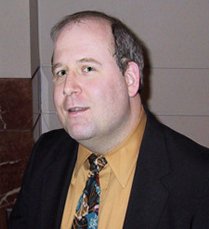You have requested to receive a Daily Digest e-mail from National Science Foundation Update.
Message: 1
From: National Science Foundation Update <nsf-update@xxxxxxx>
Date: Mon, 6 Apr 2009 07:17:50 -0500 (CDT)
Subject: Living Stock Collections for Biological Research (LSCBR)
Living Stock Collections for Biological Research (LSCBR)
Available Formats:
HTML: http://www.nsf.gov/pubs/2009/nsf09550/nsf09550.htm?govDel=USNSF_25
PDF: http://www.nsf.gov/pubs/2009/nsf09550/nsf09550.pdf?govDel=USNSF_25
Document Number: nsf09550
This is an NSF Program Announcements and Information item.
Message: 2
From: National Science Foundation Update <nsf-update@xxxxxxx>
Date: Mon, 6 Apr 2009 16:43:50 -0500 (CDT)
Subject: Corby Hovis Named American Council on Education Fellow for 2009-2010
Corby Hovis Named American Council on Education Fellow for 2009-2010

Robert Corby Hovis, a program director in the Education and Human Resources directorate at the National Science Foundation (NSF), has been selected to participate in the American Council on Education (ACE) Fellows program for the upcoming academic year. Hovis, who is the NSF-wide coordinator for the Research Experiences for Undergraduates (REU) program, will take ...
This is an NSF News - Education item.
Message: 3
From: National Science Foundation Update <nsf-update@xxxxxxx>
Date: Mon, 6 Apr 2009 16:48:14 -0500 (CDT)
Subject: Better Living through Chemistry: Brine-Loving Microbes Reveal Secrets to Success in Chemically Extreme Environments

Scientists have completed the first study of microbes that live within the plumbing of deep-sea mud volcanoes in the Gulf of Mexico, where conditions may resemble those in extraterrestrial environments and early Earth. The study, which was partially funded by the National Science Foundation (NSF), was conducted in an area where clusters of seafloor vents spew mud, oil, brine and gases that support food chains independently of the Sun.
Specialized Microbes Thrive in Harsh ...
This is an NSF News item.
This e-mail update was generated automatically based on your subscription to the categories listed for each item. Some updates may belong to more than one category, resulting in duplicate notices.
You can adjust your National Science Foundation Update subscriptions or delivery preference at any time on your Subscriber Preferences Page. You can also change your e-mail address, or stop subscriptions on this page. You will need to use your e-mail address to log in. If you have questions or problems with the National Science Foundation updates, please contact support@xxxxxxxxxxxxxxx.
National Science Foundation · 4201 Wilson Boulevard · Arlington, VA 22230 · 703-292-5111
